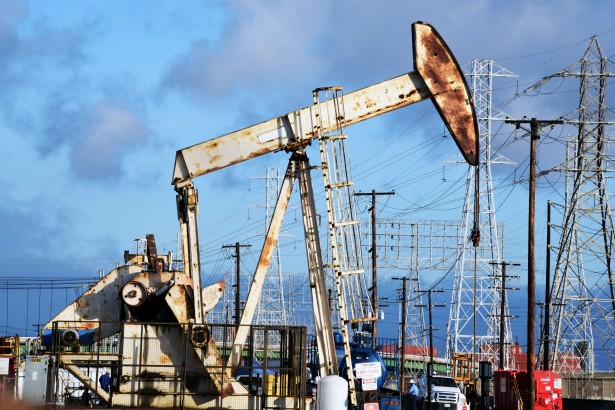Oil prices fell to the lowest level in more than a decade Wednesday. Prices were around $34 a barrel. Maybe you’ve noticed the low cost of gas filling up your tank and smiled, but what’s good news for some is bad news for oil exploration and production companies.
The two most powerful nations in the Middle East severed diplomatic relations this week – and even that sort of geopolitical crisis isn’t enough to push up oil prices.
Why? Because smart traders recognize that despite Iran and Saudi Arabia’s rivalry, the two countries have far too much in common for either to slow the flow of oil. That’s bad news for Texas oil suppliers looking for higher prices.
Producers are still pumping more oil than the world needs.
Cutting production to balance supply with weak demand could take another year, barring some kind of geopolitical disruption. Iran and Saudi Arabia are unlikely to supply it. In fact, their feud could add more oil to the market as they compete for market share.
Iran and Saudi Arabia’s dispute predates the founding of Islam. They sit across a gulf that one side calls Persian and the other claims as Arabian. Today’s leaders use religion to differentiate themselves more than language or ethnicity.
Yet geography, language, and culture impose strict boundaries and limitations in this great game. Neither Iran or Saudi Arabia could successfully invade the other, so the only way to disrupt oil production in either country is with a terrorist attack on an export facility. But both governments recognize the threat, and they protect their facilities with great intensity.
The only other way to threaten the supply is to interfere with crude tankers transiting the gulf. But the world saw Iraq and Iran attempt that in the 1980s without success.
Today, Iranian leaders are banking on the world lifting sanctions this year that were imposed due to its nuclear program, and the government can’t afford to risk new ones.
The only major political risk to the world’s oil supply comes from internal instability. King Salman is approaching his first anniversary in power, and there is intense dissent within the royal family about where he and his son Deputy Crown Prince Mohammed bin Salman have taken foreign policy.
Rumors persist that King Salman suffers from senility, and there are anonymous complaints in British media from royal family members that his 31-year-old son acted rashly by invading Yemen and executing the Shiite cleric. King Salman turned 80 on New Year’s Eve, and if he is incapable of ruling, palace intrigue could destabilize the monarchy at a time when religious extremists are eager to overthrow it.
That’s the kind of geopolitical risk that could send oil prices soaring. Gamesmanship with Iran will not.















